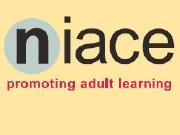Employed adults twice as likely to participate in learning than those unemployed

Adults in employment are more than twice as likely to take up learning opportunities than those outside the workforce, according to a new survey.
The research, conducted by the National Institute of Adult Continuing Education (NIACE), showed 44 per cent of employed adults have taken part in learning, compared with 21 per cent of those unemployed.
The findings reveal getting on at work and having a successful career are key motivators for adults to gain skills.
NIACE CEO David Hughes said: “This is hardly surprising at a time of such economic uncertainty, especially in the job market but the many other benefits of learning such as staying healthy, helping your family and getting more involved in your community remain very important. Evidence shows that when people are given the right opportunities to learn, their lives – and the lives of their family, friends and colleagues – really do change for the better.”
However, the survey also showed that overall adult participation in learning has declined slightly. Some 38% of adults said they had participated in learning in the last three years, which is a fall of four percentage points in two just two years.
Hughes said: “Learning can have many benefits so it is disappointing that overall participation is declining. With only one in five people outside the workforce learning many of the people who could most benefit are missing out.
“The survey shows that you are much less likely to take part in learning if you are retired, or outside of the labour market, if you are in a low skilled job, or if you didn’t do well in school. It confirms that there are enormous inequalities in who learns in adult life.”
He continued: “What I find most concerning is that there are many people who are not convinced about learning; around a third of those surveyed said that there is nothing which can be done to make them more likely to take up learning and four fifths of those who have done no learning since leaving full-time education say that they are unlikely to learn in the future. These are serious challenges for policy-makers, education-providers, employers, unions and charities who must work together to encourage more people into learning. New actions and activities are needed if the scale and patterns of participation are to change.”
NIACE has undertaken a series of annual surveys to measure adult participation in learning for nearly two decades. Each year it polls 5000 adults aged 17 and over across the UK.
Natalie Thornhill







Responses